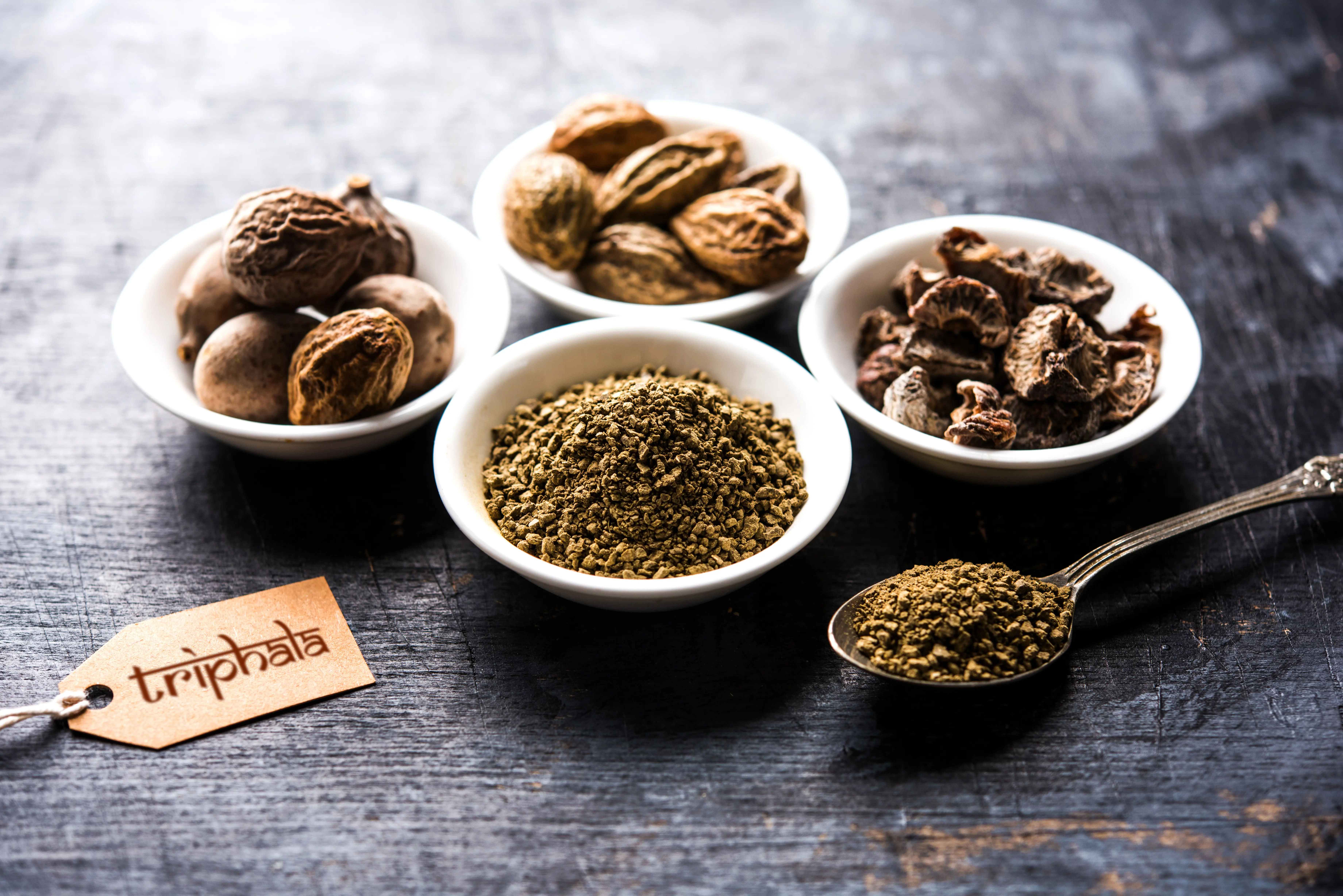Top Health Benefits of Sunflower Seeds for Skin, Hair & Heart
Discover the top health benefits of sunflower seeds for glowing skin, healthy hair, and a strong heart. Learn how these tiny seeds can support immunity, digestion, and weight management naturally.


Introduction
Sunflower seeds, often enjoyed as a crunchy snack or sprinkled over salads, are much more than a tasty bite. Packed with vitamins, minerals, healthy fats, and plant compounds, they offer wide-ranging benefits for your overall health. These small seeds from the bright sunflower plant are powerhouses of nutrition, especially when eaten in moderation as part of a balanced diet.
For many, sunflower seeds are a convenient and satisfying snack that also happens to boost well-being. From heart health to glowing skin and strong hair, they can support several vital functions in the body naturally.
Consult a Top Nutritionist for Personalised Advice
Nutritional Value of Sunflower Seeds
Understanding what makes sunflower seeds so nourishing helps you see why they’re considered one of the healthiest seeds around.
Sunflower seeds are rich in essential nutrients that nourish your body inside and out. They contain healthy unsaturated fats, plant-based protein, and dietary fibre, which help maintain energy levels and digestion. A small handful can provide magnesium, selenium, zinc, and vitamin E—nutrients crucial for cell repair and immunity.
They also deliver a good amount of B vitamins like folate and niacin, supporting brain health and energy metabolism. The combination of healthy fats and antioxidants makes them a balanced choice for those seeking natural nutrition.
Health Benefits of Sunflower Seeds
Regular consumption of sunflower seeds can help strengthen the heart, improve skin and hair quality, and support metabolism.
Sunflower seeds are not just a crunchy treat—they play a valuable role in maintaining several aspects of health. Let’s look at their key benefits.
Promotes Heart Health
Heart health is one of the most studied benefits of sunflower seeds. These seeds contain healthy fats—especially polyunsaturated and monounsaturated fats—that help lower LDL (bad) cholesterol while supporting HDL (good) cholesterol levels. Magnesium in the seeds helps regulate blood pressure, while antioxidants such as vitamin E prevent oxidative stress that can damage blood vessels.
Regularly eating sunflower seeds in small portions may help maintain good circulation and reduce the risk of cardiovascular issues. Adding them to your diet is a simple, natural way to support long-term heart function.
Boosts Skin Health
Sunflower seeds are well known for improving skin vitality. The high vitamin E content acts as a strong antioxidant that protects skin cells from UV damage and premature ageing. This vitamin also enhances collagen production, maintaining elasticity and hydration.
Alongside vitamin E, zinc and selenium contribute to clearer, healthier skin by promoting cell repair and reducing inflammation. Including sunflower seeds in your diet can give your complexion a natural glow from within.
Supports Hair Growth and Strength
Healthy hair depends on a steady supply of nutrients, and sunflower seeds deliver several of them. Vitamin B6 and zinc in these seeds help maintain healthy hair follicles, while vitamin E improves scalp circulation and prevents dryness.
The protein and iron found in sunflower seeds strengthen hair strands and reduce breakage. Over time, this combination supports hair growth and maintains thickness naturally.
Improves Immunity
Immunity relies on minerals like selenium and zinc, both present in sunflower seeds. These nutrients help your immune system fight infections by supporting white blood cell production. Vitamin E further strengthens the body’s defences by neutralising harmful free radicals.
Regular consumption of sunflower seeds in modest quantities can keep your immune system more responsive, especially during seasonal changes when the body is more prone to infection.
Aids Digestion
A healthy digestive system benefits from adequate fibre, and sunflower seeds offer a good source of it. Fibre supports
bowel regularity and helps nourish the good bacteria in your gut. This, in turn, aids nutrient absorption and overall digestive comfort.
The healthy fats in sunflower seeds also promote smoother digestion by helping the body absorb fat-soluble vitamins such as A, D, E, and K. Adding a spoonful of these seeds to yoghurt or oatmeal can subtly improve gut health over time.
Supports Weight Management
Although sunflower seeds are calorie-dense, their healthy fats, protein, and fibre make them satisfying and filling. When eaten in moderation, they can help manage hunger and prevent overeating.
The slow digestion of their nutrients helps stabilise blood sugar levels, reducing sudden cravings. As part of a balanced meal plan, sunflower seeds can complement weight-management efforts by providing energy and satiety without unnecessary snacking.
Enhances Brain Function
The B vitamins, particularly thiamine (B1) and niacin (B3), play an important role in brain and nerve health. Sunflower seeds supply these vitamins along with magnesium and vitamin E, which protect brain cells from oxidative stress.
Magnesium also contributes to better mood and focus, reducing feelings of fatigue. Including sunflower seeds as a regular snack can support cognitive function and mental alertness naturally.
Balances Hormones
Sunflower seeds contain compounds that help balance hormones, especially in women. The magnesium and vitamin B6 content support the production of serotonin, a mood-regulating neurotransmitter. These nutrients also help manage premenstrual discomfort and mood swings.
Consuming sunflower seeds during the luteal phase of the menstrual cycle is a common natural practice that helps some women experience more stable moods and energy levels.
Supports Bone and Joint Health
Strong bones and flexible joints rely on minerals like magnesium, phosphorus, and copper—all of which are found in
sunflower seeds. These nutrients aid in bone formation and help maintain cartilage health.
The anti-inflammatory properties of vitamin E and selenium also contribute to joint comfort by reducing oxidative stress
that may lead to stiffness. Consistent intake, paired with other calcium-rich foods, can keep your skeletal system strong.
How to Add Sunflower Seeds to Your Diet?
Simple ways to enjoy sunflower seeds daily can help you make the most of their nutritional value.
Sunflower seeds can be eaten raw, roasted, or lightly salted. They make a crunchy addition to salads, smoothies, and
baked goods. You can sprinkle them over porridge, blend them into nut butter, or use them as a topping for stir-fried
vegetables and soups.
For best results, consume unsalted and unflavoured varieties to avoid excess sodium. About two tablespoons a day is
enough to gain benefits without overdoing the calories. Because sunflower seeds are nutrient-dense, moderation helps
you enjoy them sustainably.
Possible Side Effects and Precautions
Although sunflower seeds are safe for most people, they should be eaten mindfully to avoid side effects.
Overconsumption can lead to unnecessary calorie intake and possible digestive discomfort due to their high fibre and fat
content. Those with nut or seed allergies should exercise caution and consult a healthcare professional if uncertain.
Some packaged versions contain added salt or flavourings that can increase sodium levels, so checking labels is
important.
In rare cases, eating very large amounts may increase cadmium exposure—a trace metal found naturally in soil.
Keeping intake moderate ensures safety and maintains nutritional balance.
Storage Tips for Freshness
Proper storage keeps sunflower seeds crisp, tasty, and nutrient-rich for longer.
Store raw or roasted seeds in an airtight container away from heat and sunlight. Refrigerating them extends shelf life
and prevents the oils from turning rancid. If you buy in bulk, divide the seeds into smaller portions to maintain
freshness. Avoid moisture exposure, which can cause spoilage.
Conclusion
Sunflower seeds may be small, but their health impact is mighty. Packed with vitamin E, healthy fats, protein, and
essential minerals, they support glowing skin, strong hair, and a healthy heart when enjoyed in moderation. Whether sprinkled over salads, blended into smoothies, or eaten as a quick snack, these nutrient-rich seeds make a simple yet powerful addition to your daily diet—proving that good things truly do come in small packages.
Consult a Top Nutritionist for Personalised Advice
Consult a Top Nutritionist for Personalised Advice

Dr. Ramalinga Reddy
General Physician
5 Years • MBBS MD General medicine
Bengaluru
PRESTIGE SHANTHINIKETAN - SOCIETY CLINIC, Bengaluru
Dt. Ila Sharma
Clinical Nutritionist
18 Years • Master in food & Nutrition
Gurugram
VIPUL GREENS - SOCIETY CLINIC, Gurugram

Mr Aritra Khan
Dietician
16 Years • Clinical Dietitian Critical Care Nutritionist Diabetes Educator. e Academic Counselor & Examiner( Msc DFSM, IGNOU) PDFFM&CCN,Doctorate(PH&CN), FCN,PGDCN ,PGCDE, CCN, CRN, CCCN, CLHF, CPN
Kolkata
Samaritan Clinic, Kolkata
(250+ Patients)

Dt. Prabhavathy
Clinical Nutritionist
8 Years • Msc Human Nutrition & Nutraceuticals
Madurai
Apollo Sugar Clinics, Madurai, Madurai
Ms. Bhavana Shetty
Dietician
7 Years • DDHN & Masters in Clinical Nutrition & Dietetics
Bangalore
Apollo Sugar Clinic, Seetha circle bangalore, Bangalore
Consult a Top Nutritionist for Personalised Advice

Dr. Ramalinga Reddy
General Physician
5 Years • MBBS MD General medicine
Bengaluru
PRESTIGE SHANTHINIKETAN - SOCIETY CLINIC, Bengaluru
Dt. Ila Sharma
Clinical Nutritionist
18 Years • Master in food & Nutrition
Gurugram
VIPUL GREENS - SOCIETY CLINIC, Gurugram

Mr Aritra Khan
Dietician
16 Years • Clinical Dietitian Critical Care Nutritionist Diabetes Educator. e Academic Counselor & Examiner( Msc DFSM, IGNOU) PDFFM&CCN,Doctorate(PH&CN), FCN,PGDCN ,PGCDE, CCN, CRN, CCCN, CLHF, CPN
Kolkata
Samaritan Clinic, Kolkata
(250+ Patients)

Dt. Prabhavathy
Clinical Nutritionist
8 Years • Msc Human Nutrition & Nutraceuticals
Madurai
Apollo Sugar Clinics, Madurai, Madurai
Ms. Bhavana Shetty
Dietician
7 Years • DDHN & Masters in Clinical Nutrition & Dietetics
Bangalore
Apollo Sugar Clinic, Seetha circle bangalore, Bangalore
More articles from General Medical Consultation
Frequently Asked Questions
1. How many sunflower seeds should I eat daily?
A small handful, or around two tablespoons per day, is ideal for most adults. This amount provides nutrients without adding excessive calories.
2. Are roasted sunflower seeds healthy?
Yes, lightly roasted sunflower seeds remain nutritious. However, choose unsalted or low-sodium varieties to retain health benefits.
3. Can sunflower seeds help with hair loss?
They can support hair strength and scalp health due to nutrients like vitamin E, zinc, and iron, though results vary depending on overall diet and health.
4. Are sunflower seeds suitable for people with diabetes?
In moderate amounts, yes. Their healthy fats and fibre can help stabilise blood sugar levels and support overall metabolic health.
5. How long do sunflower seeds stay fresh?
When stored in a sealed container in a cool, dry place, they can last up to three months. Refrigeration can extend freshness for up to six months.
.webp)
.webp)


